Effective Collaborative Work Management Strategies for Teams

Sorry, there were no results found for “”
Sorry, there were no results found for “”
Sorry, there were no results found for “”
When it comes to productivity, teams are always looking for an edge. The way we work is constantly evolving, and with that, so are the tools we use to get work done.
The goal of collaborative work management software is to help teams work together more efficiently, which makes sense.
Who doesn’t like getting more done in less time? When used correctly, these tools help teams make the best of the resources they’re working with to successfully take projects over the finish line.
This guide is a deeper dive into how all of that actually happens.
Collaborative work management is the process of planning, tracking, and executing tasks by a team of individuals to achieve a common goal.
Thankfully, there are collaborative work management tools to make task planning easier—though not all of them offer a combination of features that work for every collaborative need.
Any collaborative tool worth its salt offers a common set of features that allow for coordinated teamwork, such as:
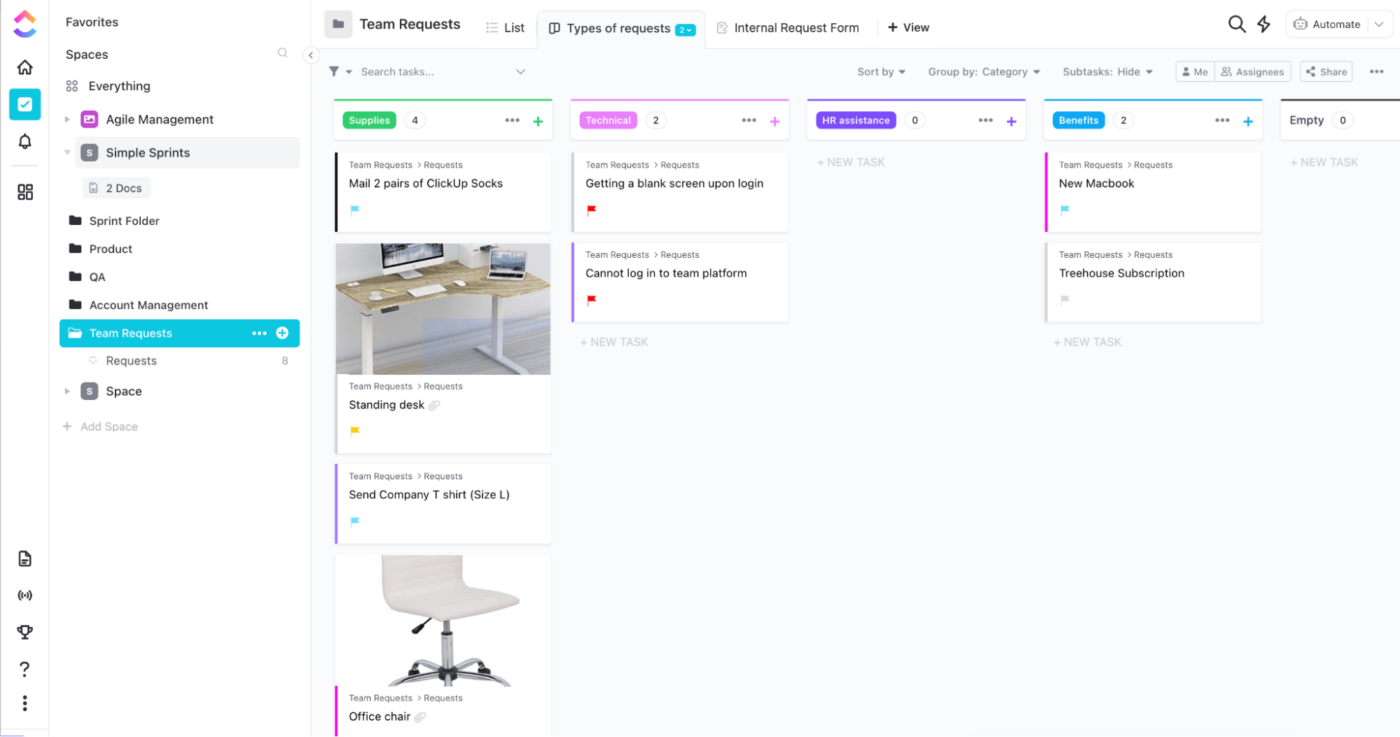
When it comes down to it, the best collaborative work management software helps project managers simplify processes and integrate a comprehensive set of intuitive tools.
Let’s talk about the upside of working with the right collaborative work management tools.
Consider a project that requires a team to work on multiple tasks simultaneously. Without collaborative work management software, it’s easy for things to get lost in communication or for team members to not be aware of what others are working on.
The right tools keep everyone informed and allow them to update their progress as needed, making it easier for managers to keep track of the project’s status and make adjustments as necessary.
Collaborative tools and software give team members the ability to work from anywhere at any time. Enabling async or live collaboration leads to a more flexible work schedule for team members.
Progress is monitored and problems are identified quickly. Changes are made in real-time to keep everyone on track with one source of truth.
Tools like ClickUp Whiteboard enable quick and easy communication between team members through live chat features. It enables teams to share updates in real-time and centralize their chat history around critical project decisions.
Saving money is a big one!
When teams work together more efficiently, it results in reduced project costs because resources are managed better. The more value a team extracts from its resources, the more everyone wins.
When team members collaborate effectively, they get more work done in less time. This leads to increased productivity for the team as a whole. Deadlines are also easier to meet because a centralized work management tool eliminates miscommunication or mishaps like lost docs that only work to slow teams down.
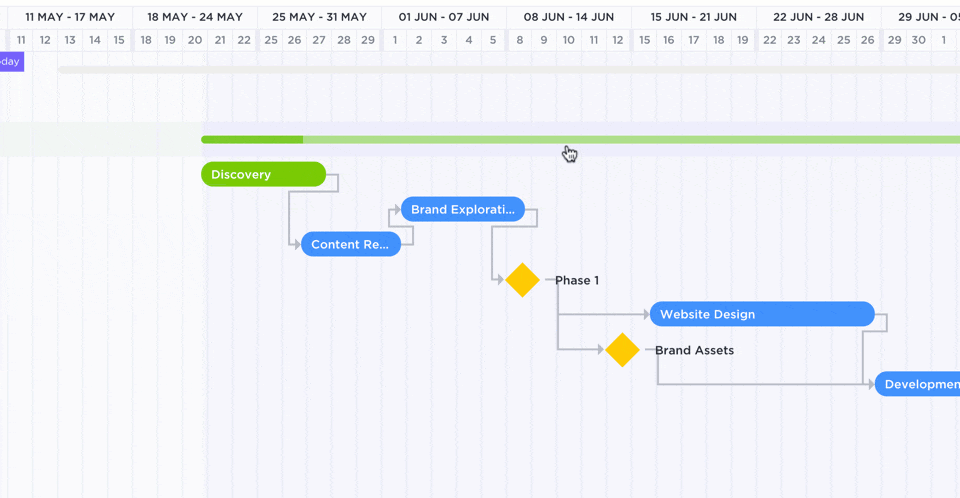
Enabling better decision-making is a must in a fast-paced world. When team members work together with plenty of visibility in their regular management tools, they free up time to make better decisions.
And, as we all know, better decisions equate to better outcomes…which equates to a better bottom line.
With a productivity platform, teams use live ClickUp collaboration detection that goes beyond a detached Google Doc. For example, you can edit and add comments to each other’s work in real-time and see what the other team member is adding as they go.
ClickUp makes it easy to do that within your Workspace. No external document tools are needed!

Now that you know the benefits of effective collaborative work management, let’s take a look at some real-world examples of how teams are using collaborative tools to manage their work.
For content creation teams, it’s crucial to have a central hub where all team members can collaborate on projects efficiently. Using collaborative work management tools like ClickUp, teams can plan, assign tasks, and track progress in real-time.
Remote or distributed teams need a way to stay connected and manage their work effectively without being in the same physical location. Collaborative work management tools offer real-time communication features, task tracking, and file sharing capabilities that make it easier for remote teams to stay connected and productive.
Event planning requires coordination and collaboration from multiple team members. With collaborative work management tools, event planners can create tasks, assign them to team members, and track progress to ensure everything is on schedule for the event.
Marketing teams need to work together seamlessly to create and execute campaigns. Collaborative work management tools offer features like shared calendars, project timelines, and task assignments that help marketing teams stay organized and on track with their campaigns.
Choosing a collaborative tool is a tall order when there are many to choose from.
But a tall order doesn’t necessarily mean an impossible one. It helps to begin by outlining the specifics of your team. Using both your team needs and project goals as criteria to cross-reference is a way to ensure you get everything you need in a collaborative work management solution. Think about:
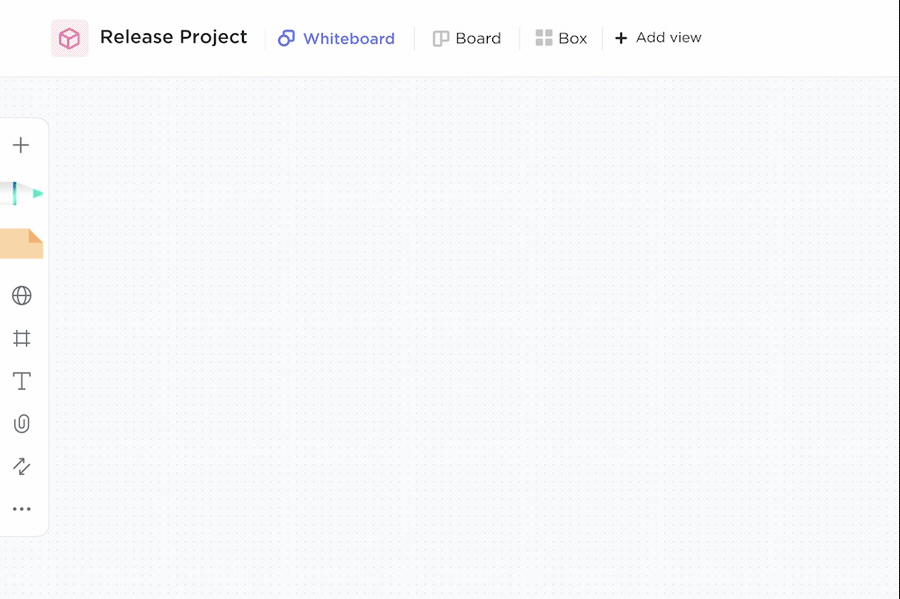
As you dive further into the actual vetting process, here are a few general questions to think through:
If you’re not sure, take a look at how your team currently gets work done. Are there existing collaboration tools that do a lot of the heavy lifting when it comes to project management that you don’t want to replace? Do your collaborative work management solutions need to integrate dedicated video conferencing software?
Check out ClickUp’s best integrations!
Some collaboration tools are made for smaller teams and are easier to use, while others are more complex and take some time for your team to learn. Consider the learning curve and time commitment it will take to get your teams started on the right foot.
Customer support is easy to overlook yet a critical part of the vetting process. You want to easily reach someone if you have questions, run into problems, or need technical assistance. Some software tools even go as far as offering personalized training sessions for large teams.
ClickUp is the best collaborative work management tool for startups, enterprises, and everything in between for many reasons. Here’s a quick rundown of powerful collaborative work management tools and features in ClickUp:
Individual contributors working on tasks as a part of a larger team can create views to drill into the work assigned to them. The most popular views include:
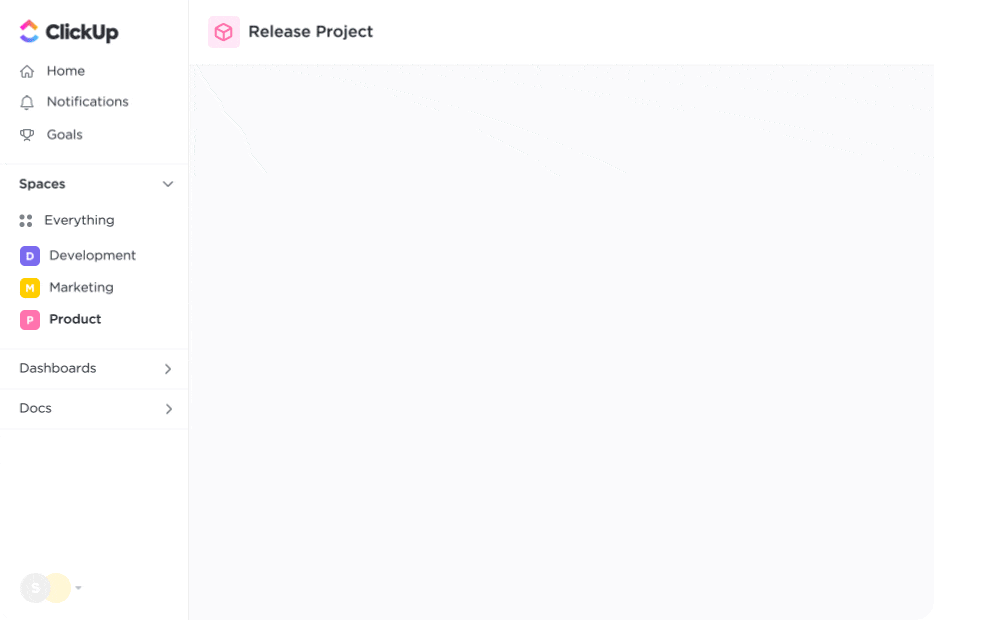
Tasks are the fundamental building blocks of ClickUp. You can assign tasks to multiple team members, keep track of files, set statuses, and add comments to update everyone on the progress. Within a task, you can perform these actions for seamless workplace collaboration:
ClickUp’s collaboration software uses a task dependencies feature to make it easy to see which tasks are dependent on others and plan accordingly. This is helpful when trying to create a project timeline or when trying to identify potential bottlenecks.
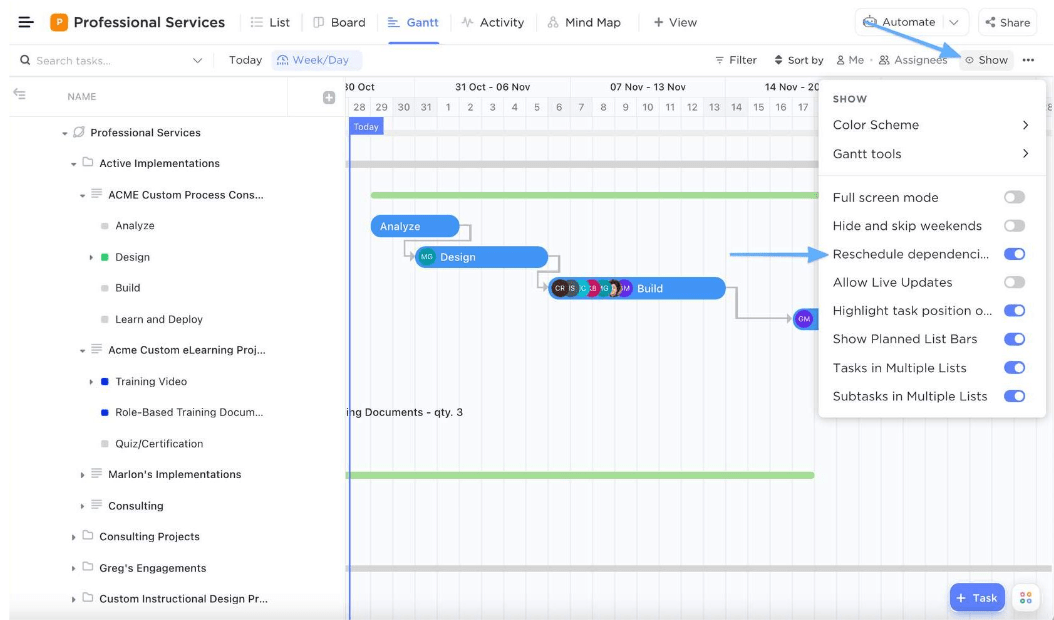
In the process of creating collaborative workflows, resource management features shouldn’t be overlooked. They enable project managers to look at resource usage—whether that’s people, money, or time—and give teams actionable insight into what it takes to get a project over the finish line.
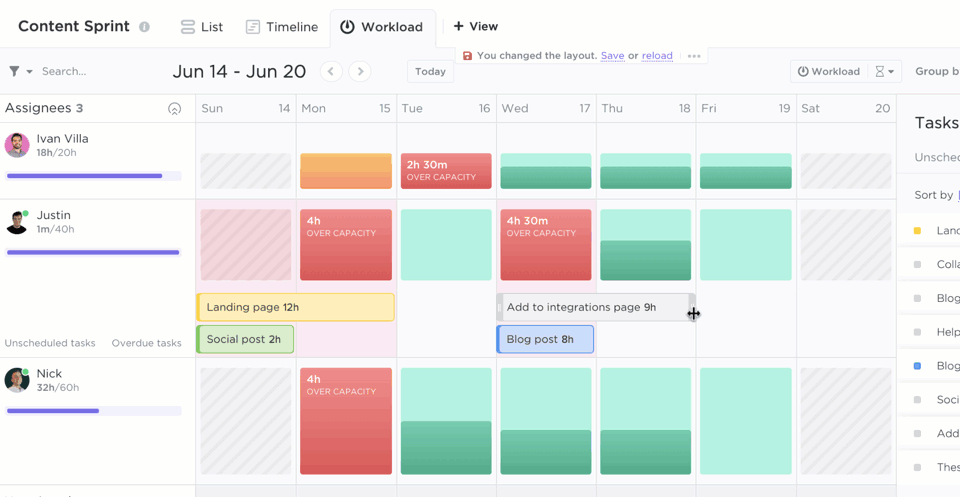
With the onset of remote work and all the rapid changes happening in the workplace, teams need a reliable way to stay connected, aligned, and productive.
Collaboration tools either slow down or boost team productivity, so if you’re looking for a single platform to align your teams, try ClickUp for free and stop switching between multiple apps and multiple tools to get your work done.
© 2026 ClickUp